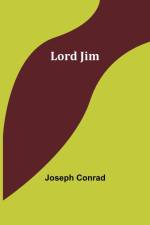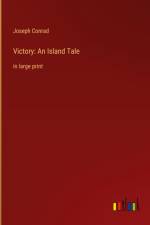von Joseph Conrad
15,90 €
Por regla general, no suele hacernos falta que nos animen en demasía para hablar de nosotros mismos; sin embargo, este librito es resultado de una sugerencia amistosa, e incluso de una cierta presión por lo demás también amistosa. Me defendí con algún denuedo, si bien, con su característica tenacidad, la voz del amigo no cejó en su empeño: «No sé si se da usted cuenta, pero la verdad es que debe usted¿». No fue una discusión; no es ése un argumento de peso, pero lo cierto es que cedí de inmediato. ¡Si de veras uno debe¿ no queda más remedio! La fuerza de una palabra es algo que se percibe de inmediato. Quien desee persuadir ha de confiarse no al argumento adecuado, sino a la palabra idónea. Siempre ha sido mayor el poder del sonido que el poder del sentido. Y no lo digo con desdén. Es preferible que la humanidad sea impresionable antes que reflexiva. Nada que sea verdaderamente grande en el sentido en que lo es lo humano ¿grande de veras, es decir, susceptible de afectar a un gran número de vidas¿ procede de la reflexión. Por otra parte, es imposible no captar el poder de las palabras, palabras tales como Gloria, por ejemplo, o Piedad. No mencionaré ninguna más. No hace falta irse muy lejos a buscarlas. Pronunciadas a voz en cuello y con perseverancia, con ardor, con convicción, estas dos por sí solas, y sobre todo por su simple sonido, han puesto en marcha a naciones enteras y han levantado el suelo duro y reseco sobre el que descansan los cimientos de todo nuestro entramado social. ¡He ahí «virtud» para el que quierä! Hay que prestar suma atención al acento, por descontado. Hay que dar con el acento justo. Eso es de suma importancia. El pulmón ancho y capaz, las cuerdas vocales que atronan o que resuenan con ternura. Que no me vengan a mí con el cuento de la palanca de Arquímedes, quien por cierto era un personaje distraído y dotado de una imaginación si acaso matemática. Las matemáticas merecen todo mi respeto, pero nunca he sido yo de mucha ni poca utilidad cuando se trata de motores. Dadme un cambio de la palabra precisa, dadme el acento indicado y moveré el mundo.






























